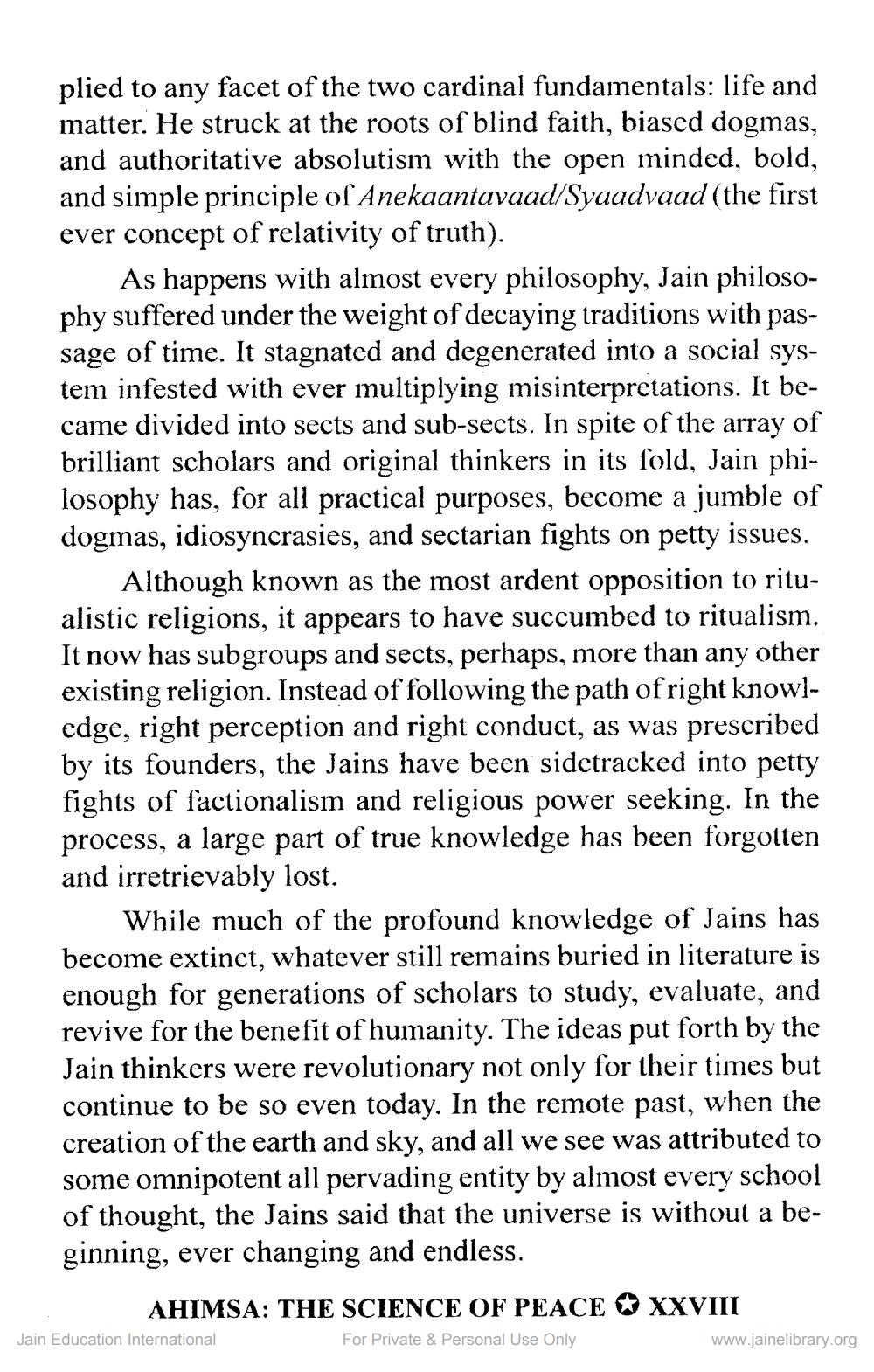________________
plied to any facet of the two cardinal fundamentals: life and matter. He struck at the roots of blind faith, biased dogmas, and authoritative absolutism with the open minded, bold, and simple principle of Anekaantavaad/Syaadvaad (the first ever concept of relativity of truth).
As happens with almost every philosophy, Jain philosophy suffered under the weight of decaying traditions with passage of time. It stagnated and degenerated into a social system infested with ever multiplying misinterpretations. It became divided into sects and sub-sects. In spite of the array of brilliant scholars and original thinkers in its fold, Jain philosophy has, for all practical purposes, become a jumble of dogmas, idiosyncrasies, and sectarian fights on petty issues.
Although known as the most ardent opposition to ritualistic religions, it appears to have succumbed to ritualism. It now has subgroups and sects, perhaps, more than any other existing religion. Instead of following the path of right knowledge, right perception and right conduct, as was prescribed by its founders, the Jains have been sidetracked into petty fights of factionalism and religious power seeking. In the process, a large part of true knowledge has been forgotten and irretrievably lost.
While much of the profound knowledge of Jains has become extinct, whatever still remains buried in literature is enough for generations of scholars to study, evaluate, and revive for the benefit of humanity. The ideas put forth by the Jain thinkers were revolutionary not only for their times but continue to be so even today. In the remote past, when the creation of the earth and sky, and all we see was attributed to some omnipotent all pervading entity by almost every school of thought, the Jains said that the universe is without a beginning, ever changing and endless. AHIMSA: THE SCIENCE OF PEACE O XXVIII For Private & Personal Use Only
www.jainelibrary.org
Jain Education International




